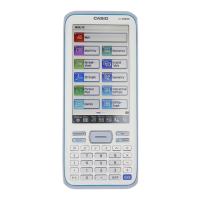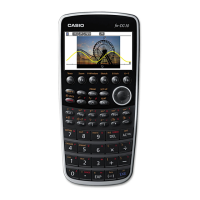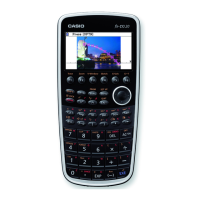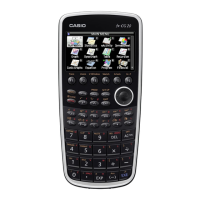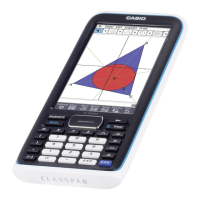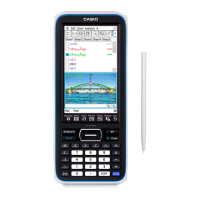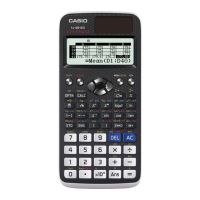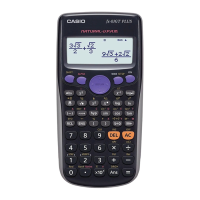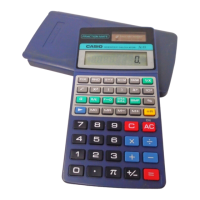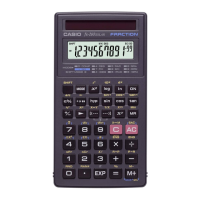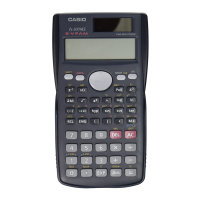2-8
u To assign a value to a variable
[value] a [variable name] w
Example 1 To assign 123 to variable A
Abcdaav(A) w
Example 2 To add 456 to variable A and store the result in variable B
Aav(A) +efga
al(B) w
• You can input an X variable by pressing a+(X) or v. Pressing a+(X) will input X,
while pressing v will input
x. Values assigned to X and x are stored in the same memory
area.
Example 3 Assign 10 to
x and then assign 5 to X. Next, check what is assigned to
x.
Abaavw
faa+(X)w
vw
u To assign the same value to more than one variable
[value]a [first variable name] ~ [last variable name]w
• You cannot use “
r ” or “
θ
” as a variable name.
Example To assign a value of 10 to variables A through F
Abaaav(A)
!e(CATALOG)6(CAT)cccc
1(EXE)
ff
1(INPUT) at(F) w
u String Memory
You can store up to 20 strings (named Str 1 to Str 20) in string memory. Stored strings can be
output to the display or used inside functions and commands that support the use of strings as
arguments.
For details about string operations, see “Strings” (page 8-25).
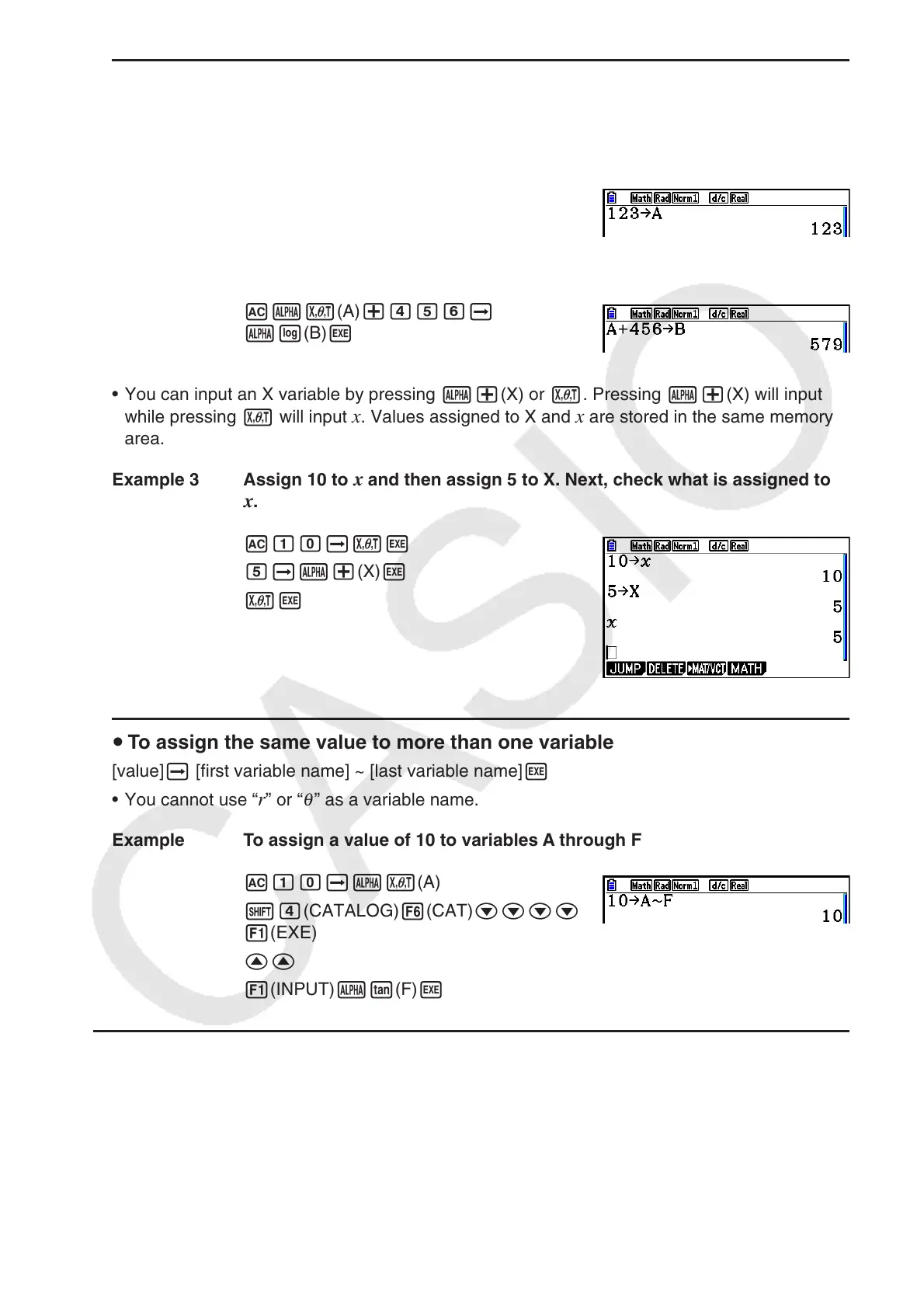